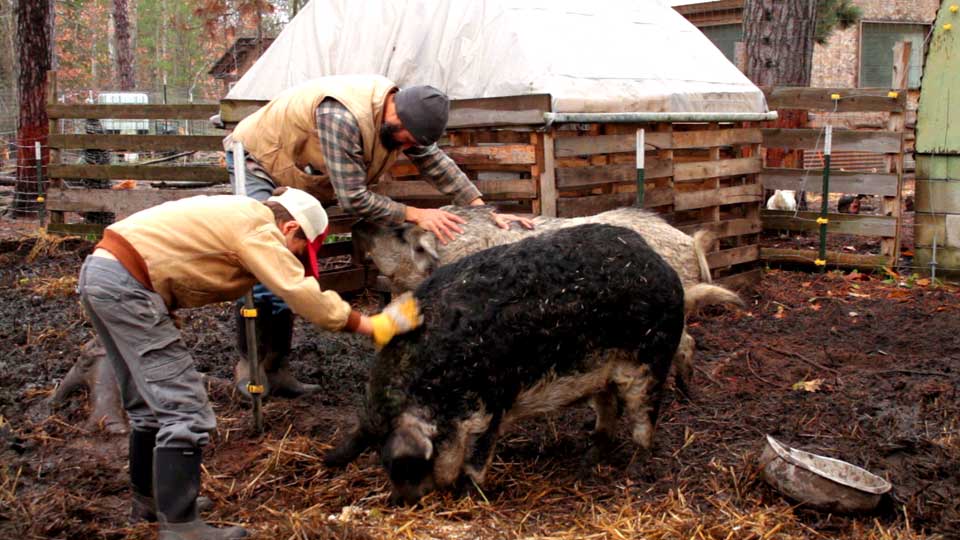Get Your Kids Off the Coach and Get Them Moving!
How to Break the Couch Potato Habit
Our kids today are not in shape! Long periods sitting in front of screens, fear for their safety that causes parents to drive them everywhere, and their lack of spending time outside after school hours. All this adds up to an epidemic of couch potatoes and lazy habits for which we are all to blame.

Twenty minutes of vigorous activity is what your kids need on a daily basis. (Monkey Business – Fotolia)
The good news: this problem is solvable and completely reversible. The bad news: as parents you’ll have to make an effort too. Children adapt the lifestyles of their families so if we’re not moving it will be that much harder to get them moving. I often see adults glued to mobile devices and screens just like their kids. As parents we will need to don our sneakers, dig in our heels, put in our earplugs, and override the whining and tantrums that may ensue by insisting our kids turn off their devices, get up, and get active.
If given a choice, most kids will choose to sit in front of the tv or computer. When taken in proportion and provided quality programming this is not a bad thing. However, watching tv or playing video games are not birthrights, and like any good treat should be earned. Measurable limits must be set for screen time and allowed only after physical activity. When pushed to use up excess energy and work out their bodies you will find that kids do other important things better specifically, eating and sleeping!
Of course physical endurance and coordination is not spread equally between all children but you don’t need to be athletic to get a work out. Physical activity is not related to talent, it is a absolute need and a must for every age. We do not live in New York, Paris, or Marquette, we live in our bodies first and that’s the true home we need to develop!
Here are some suggestions you can use to encourage children to move, and after trying any structured activities, give them some space for free play without guidance.
1. MODELING
Kids will do what you ask more effortlessly and naturally if what you say is what you do! They will often be excited to try activities if they are doing it with you. Stop being a couch potato yourself and play with your child. Simple pleasures like playing with balls, jump-rope, tag, waking, biking, etc. are great.
2. VISIT COMMUNITY PARKS AND REC CENTERS
At least once a week encourage children to meet friends outside the house. In northern climates it can be challenging or impossible to spend much time outdoors in the winter. In these cases we must battle the urge to close ourselves up indoors under the blankets. Despite cold temperatures we still need fresh air and movement for our bodies, minds, and souls. Snowshoeing, skiing, sledding, and ice-skating are fun ways to enjoy the outdoors. If these options are not readily available to you look for local rec centers or gyms in your community. (the Superior Dome in Marquette is a great place to let kids run around)
3. TEACH KIDS TO DO “SETS”
Sets of kicks, jumps, push-ups, anything that will make them gasp at the end of practice. Five minutes a day will not disturb anyone, and your child will build strength and endurance. Have them jump to give you high-fives”, hold a pillow up and have kids kick high to reach it, ask them to jump over a broom, etc. I’m sure you can come up with more.
4. PLAY BALL!
Ball games always involve running (just ask the dog). Challenge your child. Have them chase it, catch it, kick it, create a game of basketball with laundry baskets and socks, etc. Use your imagination and if you’re stumped, ask the kids they can come up with great ideas.
5. GIVE THEM CHALLENGES
Stop telling them everything they do is great when they barely move. They won’t believe you after awhile. Children can meet the challenge (and criticism) when done honestly and with kindness. Especially, when delivered with the attitude and one hundred percent belief that they are capable to improve. Sometimes I laugh and say to my children, “Bad, now try for real.” Once you see they are really trying you can add, “getting better” or “better than last time” when they make a close call.
6. SIGN KIDS UP FOR GROUP ACTIVITIES BUT DON’T STOP THERE…
Martial arts, sports, dance classes, etc. These are great but let’s face it, they only last an hour (barely) one day a week. Children need to expend energy and be active every day, including Saturdays, unfortunately. So be sure they get at least half an hour a day of strenuous activity.
7. LET CHILDREN WALK
Scooters and bicycles are great but don’t forget they have feet to walk as well. Children aged five can and should be able to walk for half an hour without stopping.
8. LIMIT SCREEN TIME
Yes, even though they may cry and scream. Have you noticed how you get up after two hours on the computer? Irritable, spaced-out, tired, eyes/head-ache? You should also implement the 20/20/20 rule when they are on the computer: every 20 minutes, look at least 20ft away, for at least 20 seconds. Using a timer really helps with this!
9. LET KIDS RUN WILD
They invented a game that rolls up the carpet on the bed? Why not, think about the energy they are releasing. Try to make sure there is at least one room in the house that they can mess up. Let them make forts, stack pillows, tumble, cartwheel, jump, etc. Games like these help them release explosive energy, develop space perception, coordination with climbing, and taking turns. The most worthwhile shopping investment in our house is the ugly brown garage sale sofa that the kids can abuse.
10. NUTRITION
Here the suggestion is primarily to limit the consumption of sweets. In modern society we are all challenged with the need to make better food choices. Processed foods make up the greater portion of most diets and are then compounded by addictions to sugar in it’s many forms. Many of the things we drink and snack on throughout the day are sweetened with sugar. A little bit here, little bit there may not seem like much but add up to a lot day after day.
I’m not saying to banish sugar altogether but limit. A sugar high is followed by a low which is accompanied with energy crashes, irritability, impatience, and fatigue. Give sweets in small limited amounts and only as rewards or for special occasions.














You must be logged in to post a comment Login